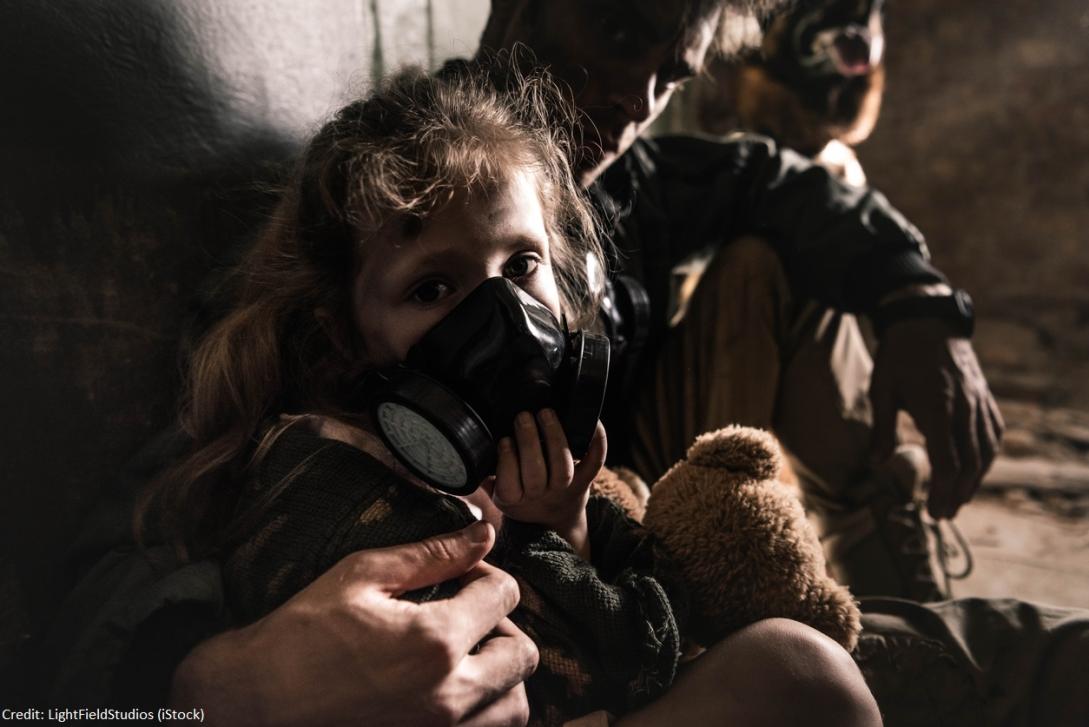Chemical weapons remain a threat to the world

“The sight that met my eyes was horror itself (…) Human beings in their death struggles trying to drag themselves away on all-fours, madly tearing their clothes off their bodies. Rasping, wheezing gasps of breath spoke of torture beyond measures. Lips were blue. The white of men´s eyes were blue. The corners of their mouth were frothed with yellow foam…” This is an excerpt from the testimony of Max Wild, a German officer who witnessed the first large-scale use of chemical weapons in 1915, during the First World War. Chemical weapons killed more than 100.000 people and injured more than a million in this conflict.
A century later, most of the world has learned from this tragic past. On April this year, we marked the 25th anniversary of the entry into force of the Convention on the Prohibition of the Development, Production, Stockpiling and Use of Chemical Weapons and on their Destruction (CWC). Since it entered into force in 1997, 99% of the world’s declared chemical weapons stocks have been verifiably destroyed under the control of the Organisation for the Prohibition of Chemical Weapons (OPCW). However, despite the tangible progress, the re-emergence of use of chemical weapons is one of the most serious threats to international peace and security.
“Despite the progress made, we are still witness to the horrific consequences of these heinous weapons. In Syria, they have caused hundreds of victims, including children”, said HR/VP Josep Borrell in a statement on the occasion. “In August 2020, a military grade nerve agent “Novichok” was used in the assassination attempt on the Russian opposition politician Alexei Navalny in the territory of the Russian Federation. Chemical weapons have also been used in Malaysia in 2017 to assassinate Kim Jeung-On’s half-brother Kim Jeung-Nam, and in the United Kingdom in 2018 in the attempted assassination of Sergei and Yulia Skripal, which resulted in the death of a British citizen".
Saeid Sadeghi, an Iranian photojournalist and war correspondent, was covering events from the Iran-Iraq War (1980-1988), when he witnessed the heinous chemical gas attacks that took place on Halabja (Iraqi Kurdistan) on 16th March, 1988. Another black page of history, along with other names such as Ieper (Belgium), Sardasht (Iran), or more recently Ghouta (Syria). On the 28th anniversary of the attacks, he shared his terrifying memories in this interview with the Tehran Peace Museum: “I saw for myself what chemical weapons could do: the blisters, the burning skin just peeling off the soldiers’ bodies and I watched some soldiers die a slow and agonizing death”.
The EU supports collective efforts against impunity for perpetrators of chemical attacks through the International Partnership against Impunity for the Use of Chemical Weapons. Under its regime of restrictive measures dedicated to fighting the proliferation and use of chemical weapons and their precursors, the EU has imposed restrictive measures on persons and entities in Russia linked to the Salisbury attack against Sergei and Yulia Skripal in 2018 and the poisoning of Alexei Navalny in 2020. In Syria, the EU has imposed restrictive measures on entities and persons responsible for development and use of chemical weapons, in particular for the attacks that took place in August 2013 in Ghouta, March 2017 in Ltamenah and 2018 in Douma.





